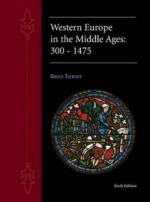|
This section contains 2,315 words (approx. 8 pages at 300 words per page) |

|
Eriugena's Greek-Latin-Christian Synthesis. The years 500-1066, sometimes called the Dark Ages, were indeed something of a desert for western European culture. In fact, F. C. Copleston has noted that there was only one major western philosopher between 500 and 1090: John Scottus Eriugena (circa 810-circa 877). Eriugena derived his Neoplatonism not only from Latin sources, such as Augustine, but also through his translations of Greek sources, such as Pseudo-Dionysius and Maximus Confessor. Thus, he discovered the Neoplatonic doctrines of Proclus, whereas earlier western scholars had been exposed mainly to the Neoplatonic ideas of Plotinus that they found in Augustine. Eriugena's most important work, Periphyseon (About Nature, circa 864-866), is an original synthesis of these Latin and Greek sources, in which he created a complete philosophical system to describe the nature of the universe. Eriugena divided Nature (by which he meant...
|
This section contains 2,315 words (approx. 8 pages at 300 words per page) |

|




